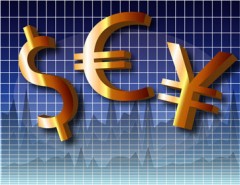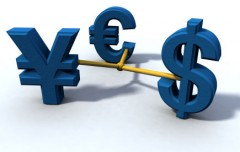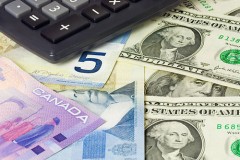step 6: Beware of Psychological Pitfalls
Many traders take shopping more seriously than trading. Few people would spend $500 without carefully researching and examining a product. But many traders take positions that cost them well over $500 based on little more than a hunch.
This cannot be stressed enough. Most traders fail because they lack discipline. Be sure that you have a plan in place before you start to trade. Your analysis should include the potential downside as well as the expected upside. So for every position you take, you should place both a Limit Order and a Stop/Loss Order.
Set Smart Trade Limits
For each trade, choose a profit target that will let you make good money on the position without being unachievable. Choose a loss limit that is large enough to accommodate normal market fluctuations, but smaller than your profit target. Lock these in using Limit Orders and Stop/Loss Orders.
This simple concept is one of the most difficult to follow. Many traders abandon their predetermined plans on a whim, closing winning positions before their profit targets are reached because they grow nervous that the market will turn against them. But those same traders will hang on to losing positions well past their loss limits, hoping to somehow recover their losses.
Sometimes traders see their loss limits hit a few times, only to see the market go back in their favor once they are out. This can lead to mistaken belief that this will always keep happening, and that loss limits are counterproductive. Nothing could be further from the truth! Stop/Loss Orders are there to limit your losses.
No trader makes money on every trade. If you can get 5 trades out of 10 to be profitable, then you are doing well. How then do you make money with only half of your positions being winners? By setting smart trade limits. When you lose less on your losers than you make on your winners, you are profitable.
Don't Marry Your Trades
People are emotional. It is easy to do objective analysis before taking a position. It is much harder when you've got money invested. Traders holding positions tend to analyze the market differently in the hope that it will move in a favorable direction, ignoring changing factors that may have turned against their original analysis. This is especially true when losses are being taken on a position. Traders tend to 'marry' a losing position, disregarding signs that point towards continued losses.
Don't Bet the Farm
Do not over trade. A common mistake made by new traders is over-leveraging an account. Just because one lot (100,000 units) of currency only requires $1000 as a minimum margin deposit, it does not mean that a trader with $5000 in his account should be able to trade 5 lots. One lot is $100,000 and should be treated as a $100,000 investment and not the $1000 put up as margin. Most traders analyze the charts correctly and place sensible trades, yet they tend to over leverage themselves. As a consequence of this, they are often forced to exit a position at the wrong time. A good rule of thumb is to trade with 1-10 leverage or never use more than 10% of your account at any given time. Trading currencies is not easy (if it were, everyone would be a millionaire!).
Be aware that trading foreign exchange on margin carries a high level of risk, and may not be suitable for all investors. The high degree of leverage can work against you as well as for you. Before deciding to invest in foreign exchange you should carefully consider your investment objectives, level of experience, and risk appetite. The possibility exists that you could sustain a loss of some or all of your initial investment and therefore you should not invest money that you cannot afford to lose. You should be aware of all the risks associated with foreign exchange trading, and seek advice from an independent financial advisor if you have any doubts.
Source: http://www.xe.com/currencytrading/improve.php
What should you know about Forex Signals ?



